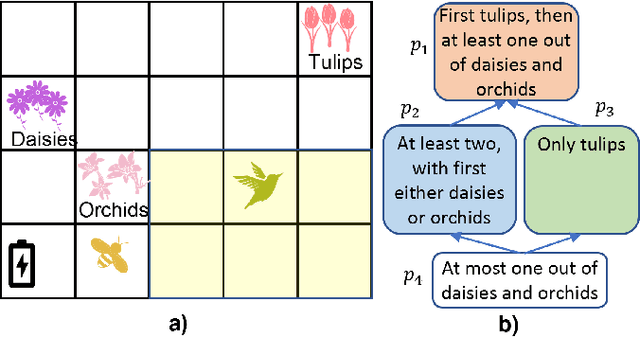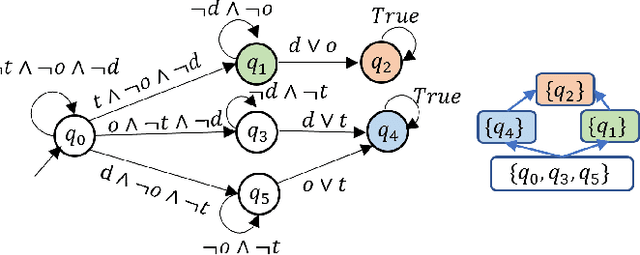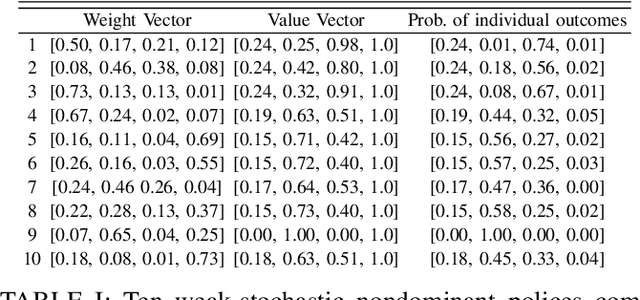Probabilistic Planning with Partially Ordered Preferences over Temporal Goals
Paper and Code
Sep 25, 2022


In this paper, we study planning in stochastic systems, modeled as Markov decision processes (MDPs), with preferences over temporally extended goals. Prior work on temporal planning with preferences assumes that the user preferences form a total order, meaning that every pair of outcomes are comparable with each other. In this work, we consider the case where the preferences over possible outcomes are a partial order rather than a total order. We first introduce a variant of deterministic finite automaton, referred to as a preference DFA, for specifying the user's preferences over temporally extended goals. Based on the order theory, we translate the preference DFA to a preference relation over policies for probabilistic planning in a labeled MDP. In this treatment, a most preferred policy induces a weak-stochastic nondominated probability distribution over the finite paths in the MDP. The proposed planning algorithm hinges on the construction of a multi-objective MDP. We prove that a weak-stochastic nondominated policy given the preference specification is Pareto-optimal in the constructed multi-objective MDP, and vice versa. Throughout the paper, we employ a running example to demonstrate the proposed preference specification and solution approaches. We show the efficacy of our algorithm using the example with detailed analysis, and then discuss possible future directions.
 Add to Chrome
Add to Chrome Add to Firefox
Add to Firefox Add to Edge
Add to Edge